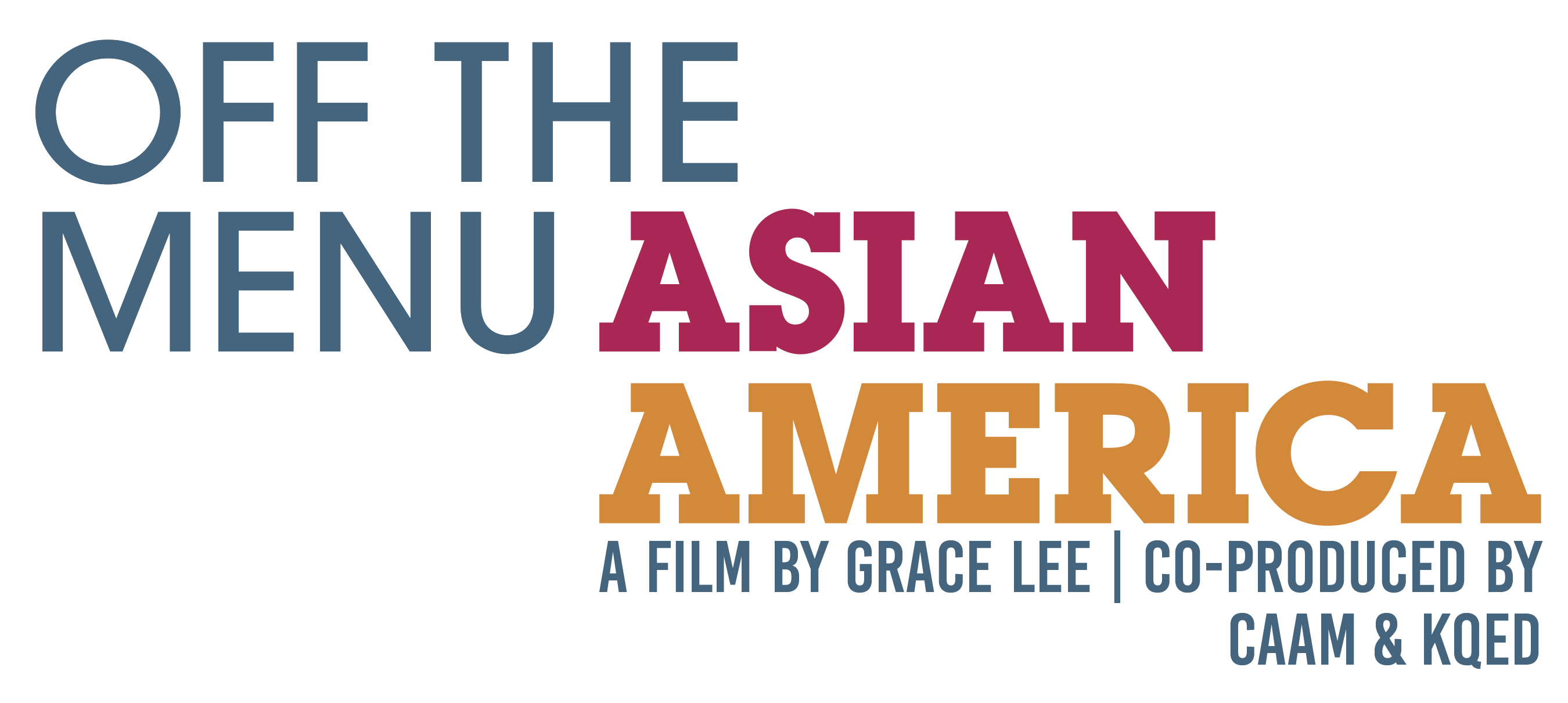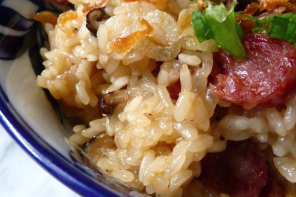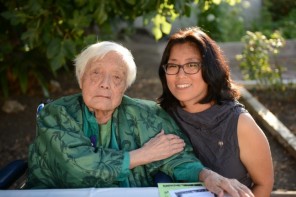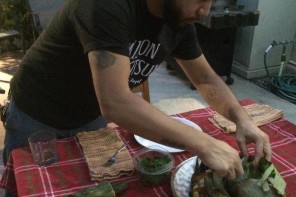On a fall evening in Emeryville, CA, Martin Yan is affable and happy about taping his show in front of a studio audience. Just back from a trip to Chengdu, China, he excitedly shows the audience—on this particular evening, a group of KQED members—footage that they shot while on location in Chengdu: adorable pandas chewing on bamboo.
Yan is best known as the energetic, crowd-pleasing Chinese American host of the long-running cooking show, Yan Can Cook. He is also a restaurateur, cookbook author, and has his own line of kitchen appliances. Yan Can Cook launched in 1979, premiering on Canadian TV and then landing on PBS in 1982. For the past 38 years, he’s filmed more than 3,500 cooking show episodes in the U.S. and internationally.
Yan is taping the cooking portion of the show on that particular evening, making a Malaysian shrimp dish with spicy chili coconut milk. I caught up with the host just before the taping in the Emeryville studio. CAAM has honored Yan at CAAMFeast. The new season, “Yan Can Cook: Spice Kingdom” and “Taste of Malaysia with Martin Yan” premieres February 14, 2018 (check local listings) on PBS.
—Momo Chang
Throughout these years, what are some reflections you have about Yan Can Cook?
Actually, I was probably one of the first Asian Americans breaking in the mainstream media as a daily cooking show host. Our show used to be daily. We produced 130 shows a year. That means it lasts for six months, and it repeats once. Since then, we have done close to 3,500 cooking shows worldwide. I’ve probably done more shows than most people on Earth. And this is one of the longest continuous running food and travel shows in the planet.
Can you talk about the series and where it’s filmed?
When I was in Chengdu, we made Yan Can Cook Chengdu. Everything I do is Yan Can Cook Chengdu, Yan Can Cook Thailand. What makes our show unique is we’re not just doing food. We’re talking about heritage, history, food, and culture. We have a big crew, 20 some people travel all over Korea, all over Chengdu, to film. We have 65 percent of the show content is on location. About 35 percent is studio cooking.
I brought back a lot of props, a lot of ingredients, and a lot of cooking techniques that I learned. I basically want to share with the people in North America. Because chefs don’t know how to present it to the home cooks. They just do it in big woks and big fires, and nobody can do it at home. Here, I basically interpret, using the same technique and same ingredients and I do it the way they can do it at home.
When you go to travel, are you also learning to dishes?
Of course. I cannot possibly be the expert of all cuisines. We finished Taste of Vietnam, which was broadcast two years ago, and we just finished Taste of Malaysia, which will broadcast in February.
You’ve been doing this a long time—introducing Chinese cooking to an American audience. Do you feel like non-Chinese people, are seeing Chinese food differently now?
I think things are changing so fast. There are lot more businesses going on in China. You go to the Great Wall, about one-tenth of the people of the tourists are from America. The first thing they go there, is to eat local food. This is the same thing why Thai, Vietnamese and Japanese food is so popular. A lot of people travel there. When you get there, you taste local flavors.
I think Chinese food has made the inroads over 150 years ago and continues to be popular [in the U.S.]. The different thing is, the transition from typical chop suey, chow mien food culture, to more sophisticated, more refined, and more diverse regional cuisine. Now you can see restaurants that specialize in dumplings, or like Din Tai Fung, xiao long bao.
Now we have chefs like Brandon Jew of Mister Jiu’s and other people who are redefining Chinese cuisine. They’re changing ingredients, using organic ingredients, and adding their interpretation of traditional dishes. What are your thoughts about the new wave of Chinese cooking in the U.S.?
Human history is always evolving. I’m a more traditionalist, and everything I do is more traditional. Even though I also go to the fact that, “Hey, if you don’t find betelnuts or this and that, use almonds use other things.” But that kind of inclusion of ingredients doesn’t mean you’re changing it. I’m quite sure a lot of the young chefs have a good understanding of the basic principle of Asian techniques, the spirit of Asian cuisine, whether it is Chinese, Japanese. One of the top Japanese chefs basically combines some of the French techniques and Japanese techniques together.
You see a lot of Chinese and Asian chefs—you go to Slanted Door or Chef Tony at MY China (Yan’s restaurant in San Francisco)—they’re all using their own training and culinary foundation to explore new frontiers. I think it’s great for young chefs to explore new things as long as they’re offering something really, really fresh, healthy, delicious, and have the right audience. Being creative, being inventive, being contemporary, and still maintaining the basic foundation is the way to go.
What are your favorite dishes to cook at home?
Most chefs, even if they love to cook at home, they normally cook the simplest. I stock up my restaurant with all the seasoning and basic ingredients. I always have a lot of leafy vegetables. This is my basic diet. I eat a vegetable-based diet. I haven’t gained a pound in 30 years. I’m not a vegetarian but I read a lot of articles about how healthy a vegetable-based diet is. And using meat as a condiment and as flavoring agent rather than eat a lot of meat. We are a nation of overeating. The key is to eat properly, have the right diet, and exercise. I work with AARP as an ambassador with Gary Locke and we promote an active lifestyle, healthy lifestyle, and to socialize.
A lot of people in America when they get older, they stay put at home and watch television. I encourage them to get up, and move around and say hello to your neighbor. Cooking something at home and share with your neighbors. The whole idea is sharing. When you share, you have a sense of satisfaction.
People always say, why don’t you retire? If I enjoy what I’m doing, why should I retire? I went to see Lionel Richie. This guy is about 70 years old. Still singing and jumping around! All these entertainers and actors and Supreme Court justices. If you feel that you’re making a contribution and enjoy what you do, why retire?
Do you feel like you’re doing more now?
I don’t know what happened! In my old age, I seem to be a lot busier. I used to only do things in America. Now I do things all over the world. I have more projects than I can handle in Asia. I can speak Mandarin, Cantonese, English and some Toisanese—I encourage a lot of people to be bilingual.
So for this next season, what can the audience look forward to?
I bring you the very best of the cuisine, where the cuisine came from, the history, the cultural backdrop, the heritage, and along the way, the art and craft, because that’s a part of the lifestyle. Not only you eat healthy, you cook healthy, but we’re living; it’s a living world. You gotta enjoy life. So basically, I’m happy to be where I am. I don’t think I’ll ever dream or contemplate retirement.
The interview has been edited for length and clarity.




